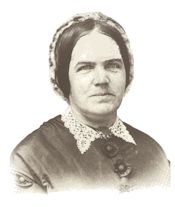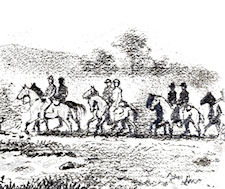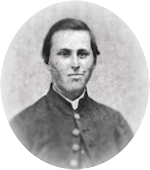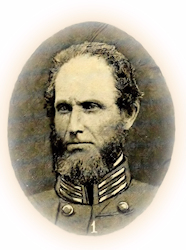November 16, 1864.
As I could not obtain in Covington what I went for in the way of dye stuffs, etc., I concluded this morning, in accordance with Mrs. Ward’s wish, to go to the Circle. We took Old Dutch and had a pleasant ride as it was a delightful day, but how dreary looks the town! Where formerly all was bustle and business, now naked chimneys and bare walls, for the depot and surroundings were all burned by last summer’s raiders. Engaged to sell some bacon and potatoes. Obtained my dye stuffs. Paid seven dollars [Confederate money] a pound for coffee, six dollars an ounce for indigo, twenty dollars for a quire of paper, five dollars for ten cents’ worth of flax thread, six dollars for pins, and forty dollars for a bunch of factory thread.
On our way home we met Brother Evans accompanied by John Hinton, who inquired if we had heard that the Yankees were coming. He said that a large force was at Stockbridge, that the Home Guard was called out, and that it was reported that the Yankees were on their way to Savannah. We rode home chatting about it and finally settled it in our minds that it could not be so. Probably a foraging party.
Just before night I walked up to Joe Perry’s to know if they had heard anything of the report. He was just starting off to join the company [the Home Guard], being one of them.








